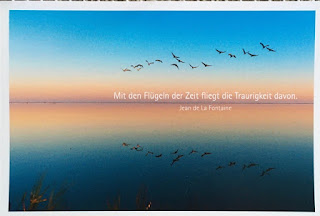On this final day of the year, the quotation by Tseng-Kuang is most apposite, "Do not worry about the past, turn to the future."
It reminds me of the annual joy and challenge of filling in my Year Compass, which I will be doing with my other half this evening. I blogged about this here. We will be looking back on the past year (and oh my, what a year it has been!) and looking forward to a (hopefully) less constricted 2021. Although I must say at this point, I would far rather remain in lockdown longer and get this horrible virus defeated, than come out early and risk it going on indefinitely.
In spite of all its oddness - who would have dreamed that everyone not only could, but should, walk into a bank in a mask and ask for money and no-one would turn a hair? - 2020 has not been entirely bad. I have grieved over the loss of friends and acquaintances, and missed all the hugs I haven't received, the friends and family I haven't seen face-to-face, and the Unitarian events I haven't attended (especially Summer School). But like I say, it has not been all bad. I turned 60 in February and am happy about that. My first novel, One Foot in Front of the Other, was published in October, and I would never have dreamed that I would be featured in a prominent broadsheet newspaper, talking about it. And I have crocheted four blankets and worked on my next book most days.
At this time of year, a time of endings and beginnings, I always find the words of 19th century Unitarian and Transcendentalist Ralph Waldo Emerson both challenging and reassuring:
"Write it on your heart that every day is the best day of the year. No man has learned anything rightly until he knows that every day is doomsday. Today is a king in disguise. Today always looks mean to the thoughtless, in the face of a uniform experience that all good and great and happy actions are made up precisely of these blank todays.
Let us not be so deceived; let us unmask the king as he passes! He only is rich who owns the day, and no-one owns the day who allows it to be invaded with worry, fret and anxiety.
You have done what you could. Some blunders and absurdities no doubt crept in; forget them as soon as you can. Tomorrow is a new day; begin it well and serenely and with too high a spirit to be cumbered with your old nonsense. This day is all that is good and fair. It is too dear, with its hopes and invitations, to waste a moment on the yesterdays."
I hope that 2021 will be a better year for all of us - that we will all be vaccinated against Covid 19, that we will eventually be able to meet in person once more, and that our experiences of the past year will have turned us into kinder, more compassionate people. Another New Year will be welcomed in at midnight, full of hints and promises. We have another chance to learn new things, to make new friends, to appreciate old friends, and to recognise the Divine everywhere.
May it be so, for all of us.































